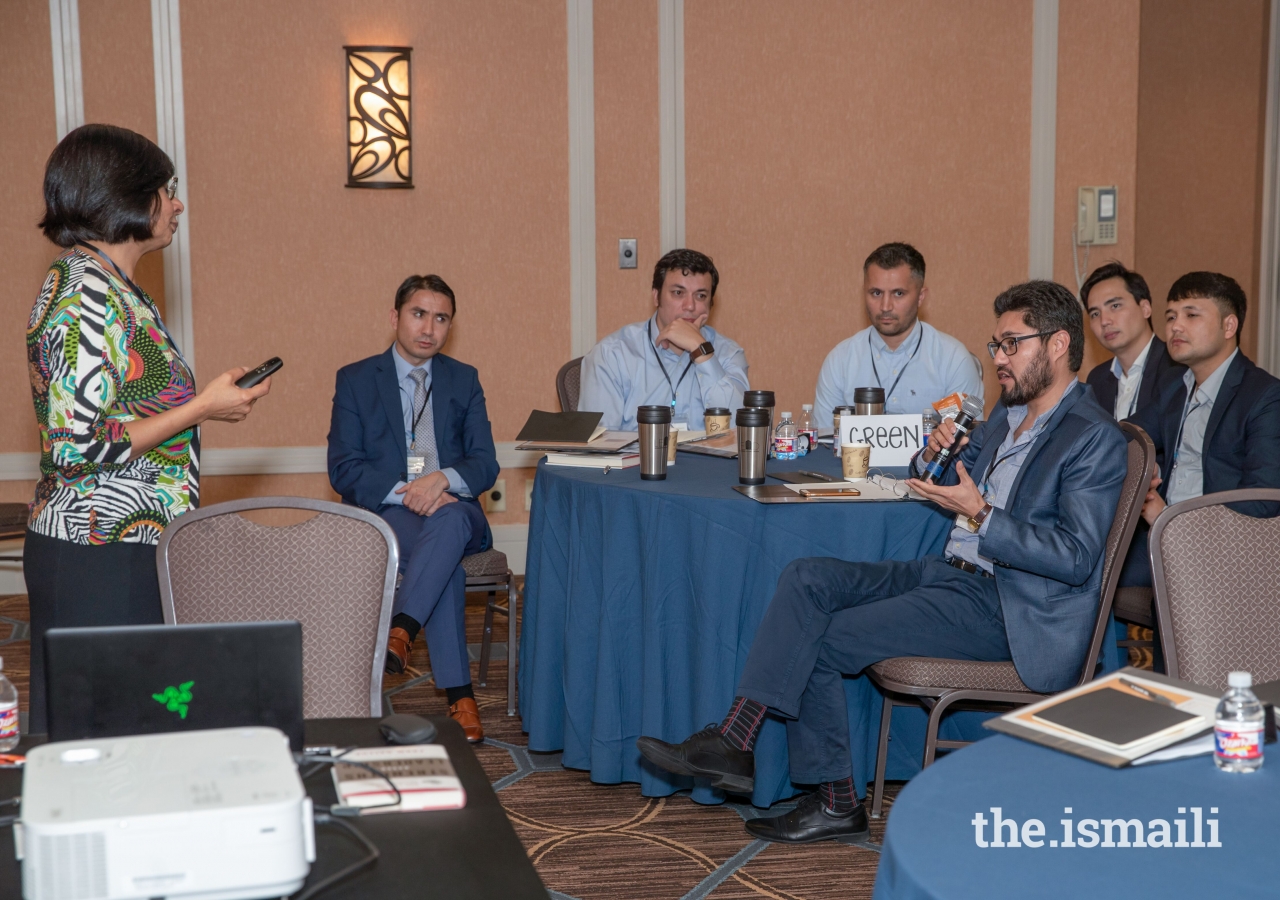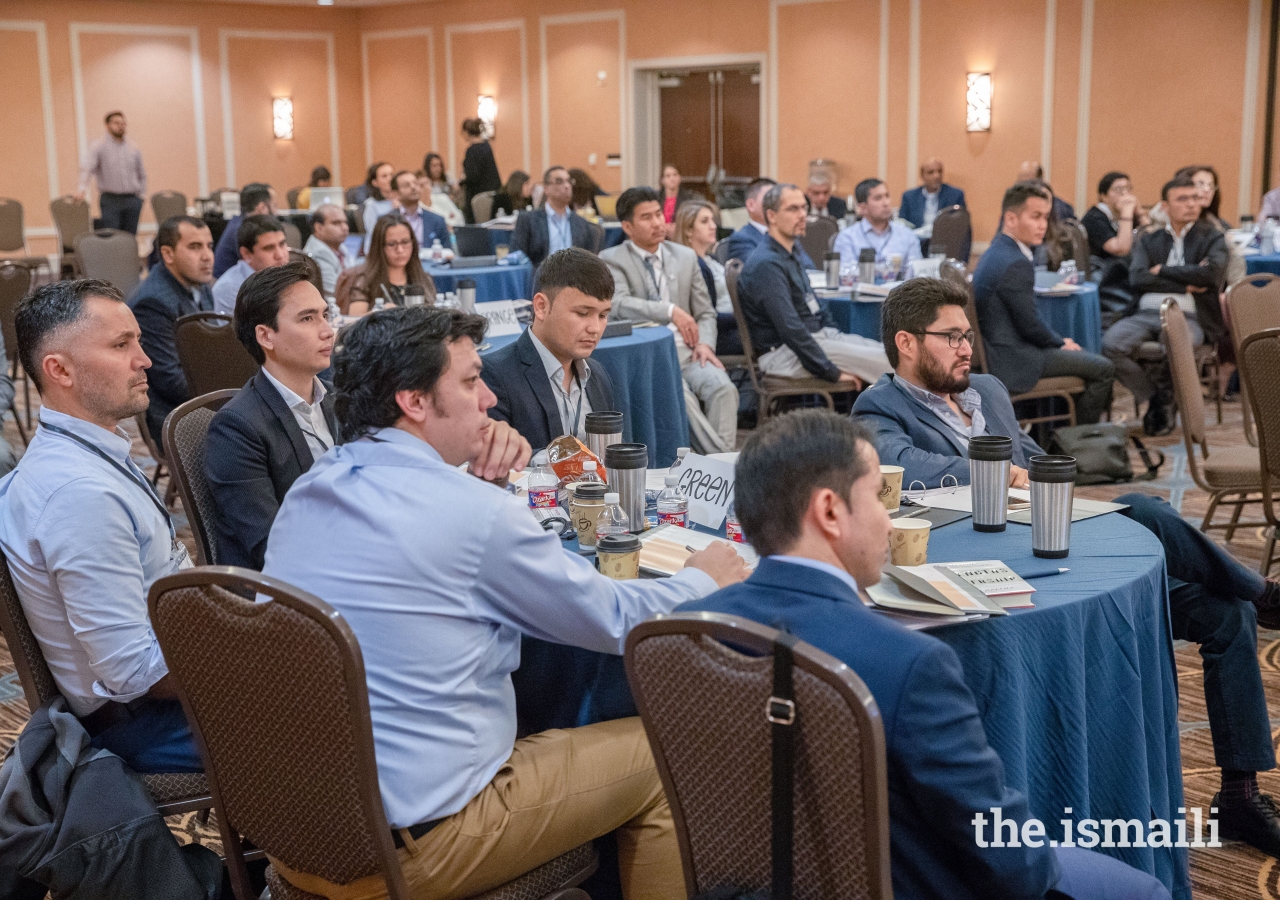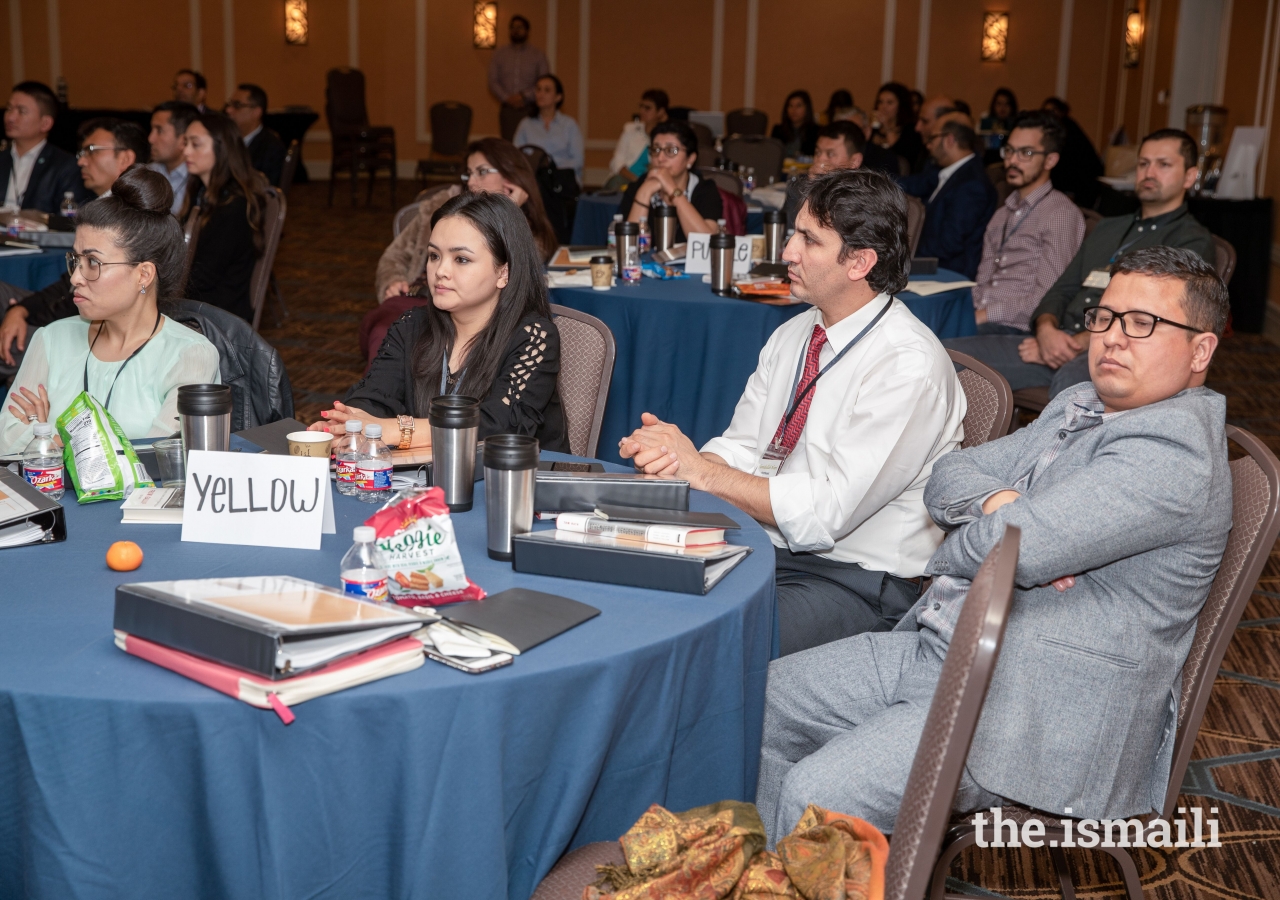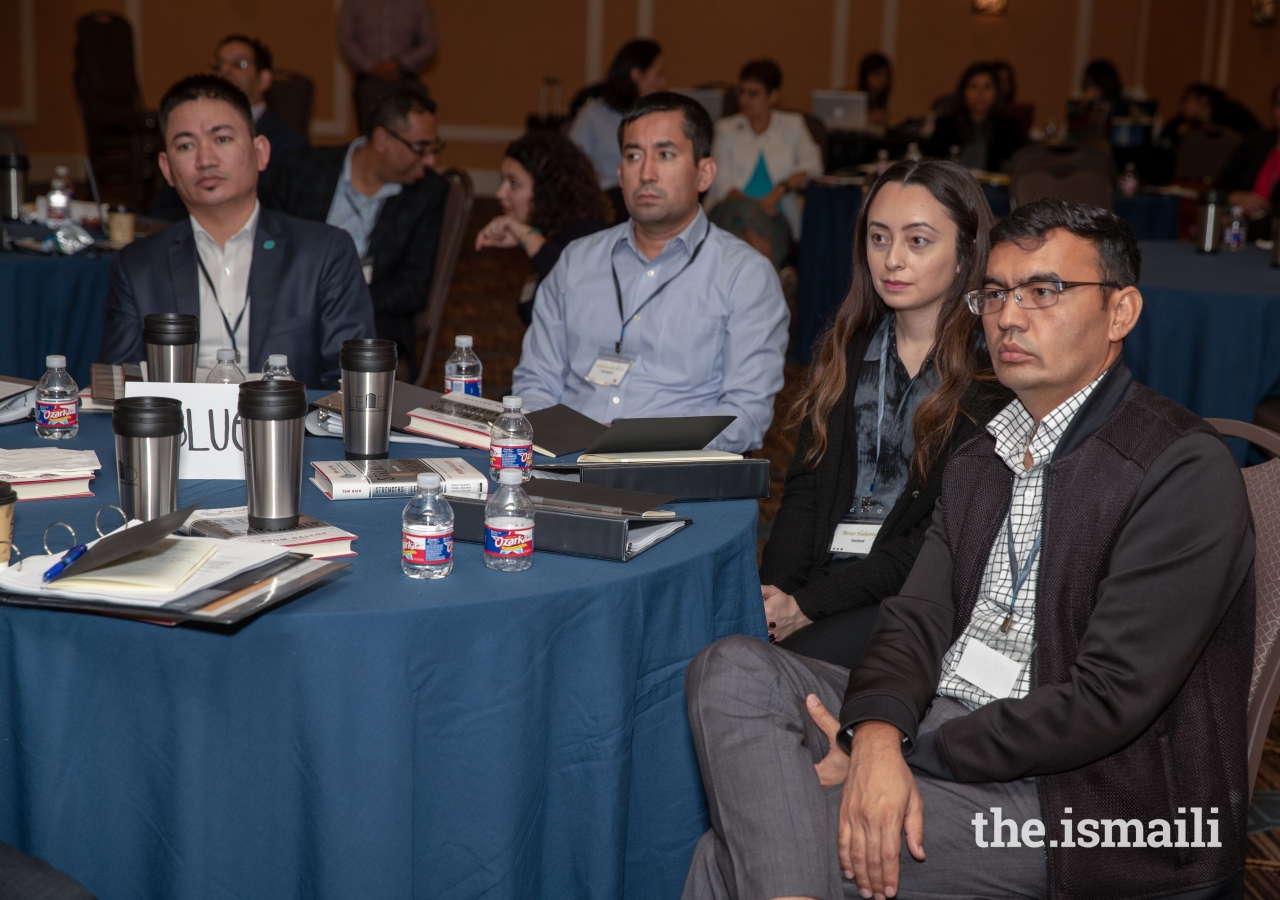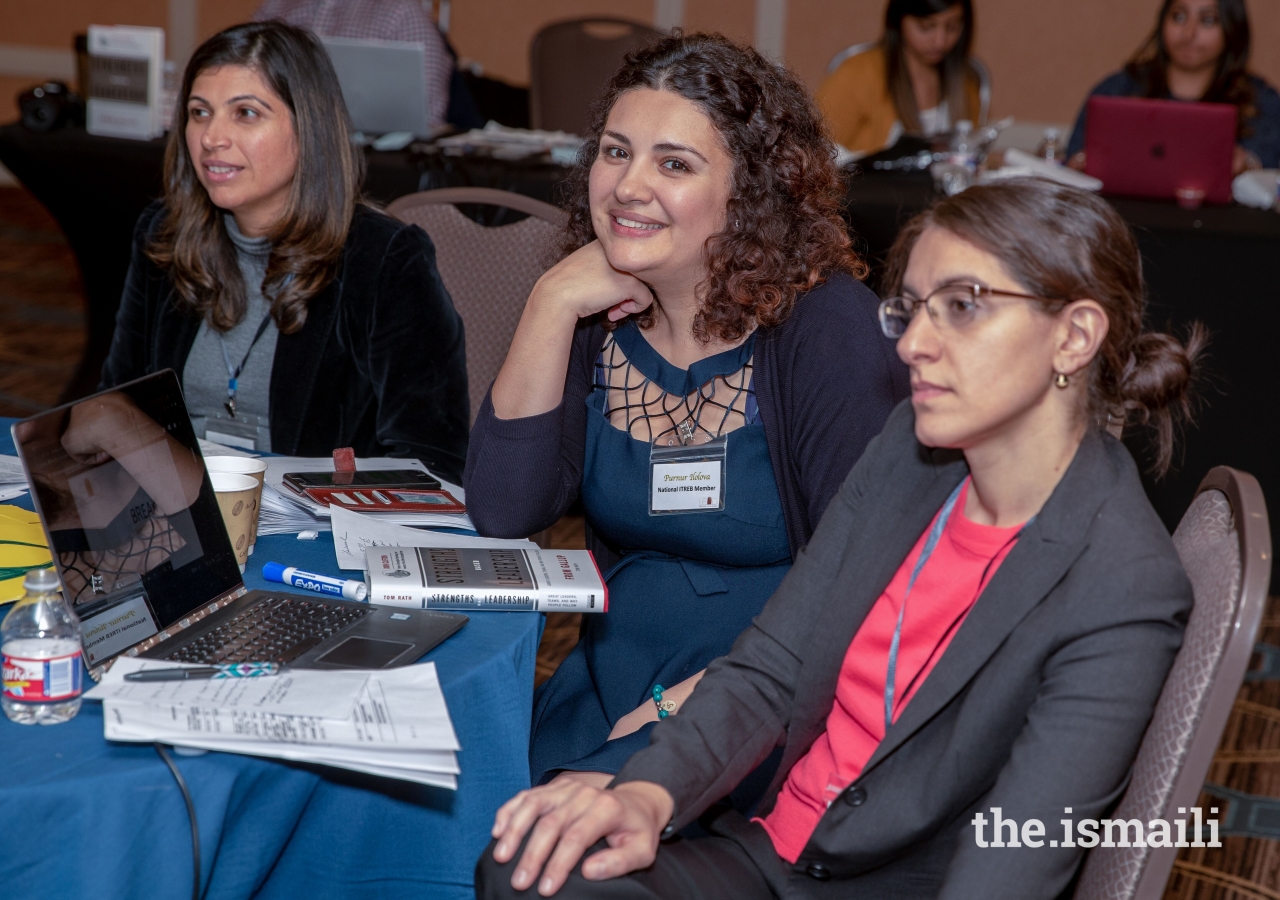The Leadership Training Program's objective is to create an environment where participants develop a real sense of community while gaining knowledge about Imamat and Jamati institutions. They learn from speakers and from each other, sharing their knowledge to better serve the Imam and the Jamat.
Participants were nominated by the Local Councils, and were each interviewed online by the LTP team. The team also reviewed responses to a questionnaire to determine the nominee’s education, seva history, commitment to the program, and availability for leadership roles.
Lead Organizer, Adiba Karimi said, “the goal of LTP is to equip participants with knowledge and skills and to help them learn about their own leadership abilities. We believe the program will increase their desire to help Jamat in the USA and elsewhere, and it will increase institutional representation and diversity.”
Sessions were led by an international group of speakers on topics, ranging from transformational leadership, pluralism and diversity, women in leadership, strength-based leadership, leadership in the Ismaili tariqah, the AKDN, and strategic planning. Participants were also given an overview of the central Institutions and portfolios of the National and Local Councils including Conciliation and Arbitration Board (CAB) and the Tariqah and Religious Education Boards (ITREB).
Amin Kassam, a member of the Legal Matters Portfolio, led a session on the Ismaili Constitution. But when Amin was first appointed to the Council, he found it challenging to understand the institutional structure and its operations. He sees LTP as a solution, because the program “works with the next generation of leaders, and provides them with the tools to understand what it means to serve in the Institutions.”
Reflecting on Hazar Imam’s guidance during the Diamond Jubilee on the need to strengthen our institutions, Amin said, “We can only do so by helping to identify, train, and guide a diverse group of young leaders who can take on roles in our institutions to help actualize Imam's vision.”
Almuhannad Idris is an LTP participant who is originally from Syria. He said that the first sessions of LTP provided him and his fellow participants an opportunity to “learn more about how amazing our institutions are and what services they offer. It seems that we have institutions and services to address almost every single aspect of our lives, on the material side and on the spiritual side.”
Khorsid Nasseri had her first experience with Jamati Institutions when her family left Afghanistan and were helped by FOCUS Humanitarian Assistance to settle in India. After graduating from LTP, she hopes to work towards improving the lives of Ismailis in the United States, such as “our seniors with their quality of life, or our youth with their education, or our newly-arrived Jamat who need help in so many fields like settlement, job, education, guidance to integrate with the culture here while keeping true to our practice and tariqah.”
Shodi Abdulvasiev is an LTP participant who was born in Tajikistan, and currently lives in Florida. The presence of leaders from every strata of the Jamat at the LTP sessions made a great impression on him. Current Jamati leaders attended the LTP sessions, and in his words, were “involved and very approachable making the training more effective and inspiring for the participants.”
Shodi joined LTP due to a “desire to give back to the Ismaili Jamat in a more systematic way.” He said, “I want to identify the needs within the current Jamat where my personal, academic and professional experience can be useful. The training has given me a better understanding of the Jamati institutions' structures, roles and responsibilities, thus making it easier to target a need that I can potentially assist with.”
Shodi has a desire to return to Tajikistan and said, “I believe it would be of tremendous assistance if people like me are willing to replicate best practices of an effective, efficient volunteer experience in their home countries - especially in the countries where the Jamati institutions are a new phenomenon and the Jamati needs are great.”
Participant Mohammad Qaini Hazaraoya was drawn to the diversity amongst the participants, and the discussions on pluralism that were emphasized during the program. Originally from Iran, he said, “It is amazing how so many of us from different countries of origin can work together as a team to have a successful Jamat. We are not different. We are one.”
For Mohammad, leadership is not innate. He said, “Leadership is a choice. Everyone needs a vision and a mission of who we want to be. The messages of Hazar Imam should be our vision. We need to open our eyes and think, who are we going to be 10 years from now; 20 years from now?” This is the message that he is taking from LTP.
One of the current leaders in attendance at LTP was Sean Hassan, Chairperson of the Aga Khan Youth and Sports Board for the United States. He was impressed by the caliber of the candidates, which was evident by the depth of discussions and the insightful questions that were raised by the participants during the sessions.
“As a leader in the Jamat,” said Sean, “it is exciting to see so many existing and emerging leaders from all different backgrounds. We have, in the group, leaders who will be taking their place in Jamati Institutions in the near future, and in the years to come, not just in the US, but around the globe. I hope that by learning about our Jamati institutions and programs, more individuals from different backgrounds will participate in greater numbers.”
Teams of participants were assigned to one of various Model Council Projects. Through collaboration with local boards and portfolios, and with the support of the local councils, teams were tasked with finding implementable solutions for a current problem or need the Jamat faces today. Teams will present their proposal to the larger group at the next LTP session in May 2019.
Shodi’s team represents the Community Building Portfolio. The team consists of five participants, and is tasked with identifying new Jamati members arriving to the US, tracking their needs, and developing a plan to help them settle.
Given that team members reside in various parts of the country, the group will work virtually over the next few months. Shodi says, “To ensure that every team member has an opportunity to grow into his or her leadership potential, every person is to lead a conference call. Later we will develop a plan and assign roles on how to present our final proposal during the last LTP phase. We are fortunate to have team members with diverse but relevant and practical experience on the subject matter, and I am confident that we have the needed potential to complete the project.”
The Council for the USA looks forward to utilizing the talents of the LTP graduates and hopes that some will eventually return to their home countries to contribute to the social progress of their Jamats of origin.

